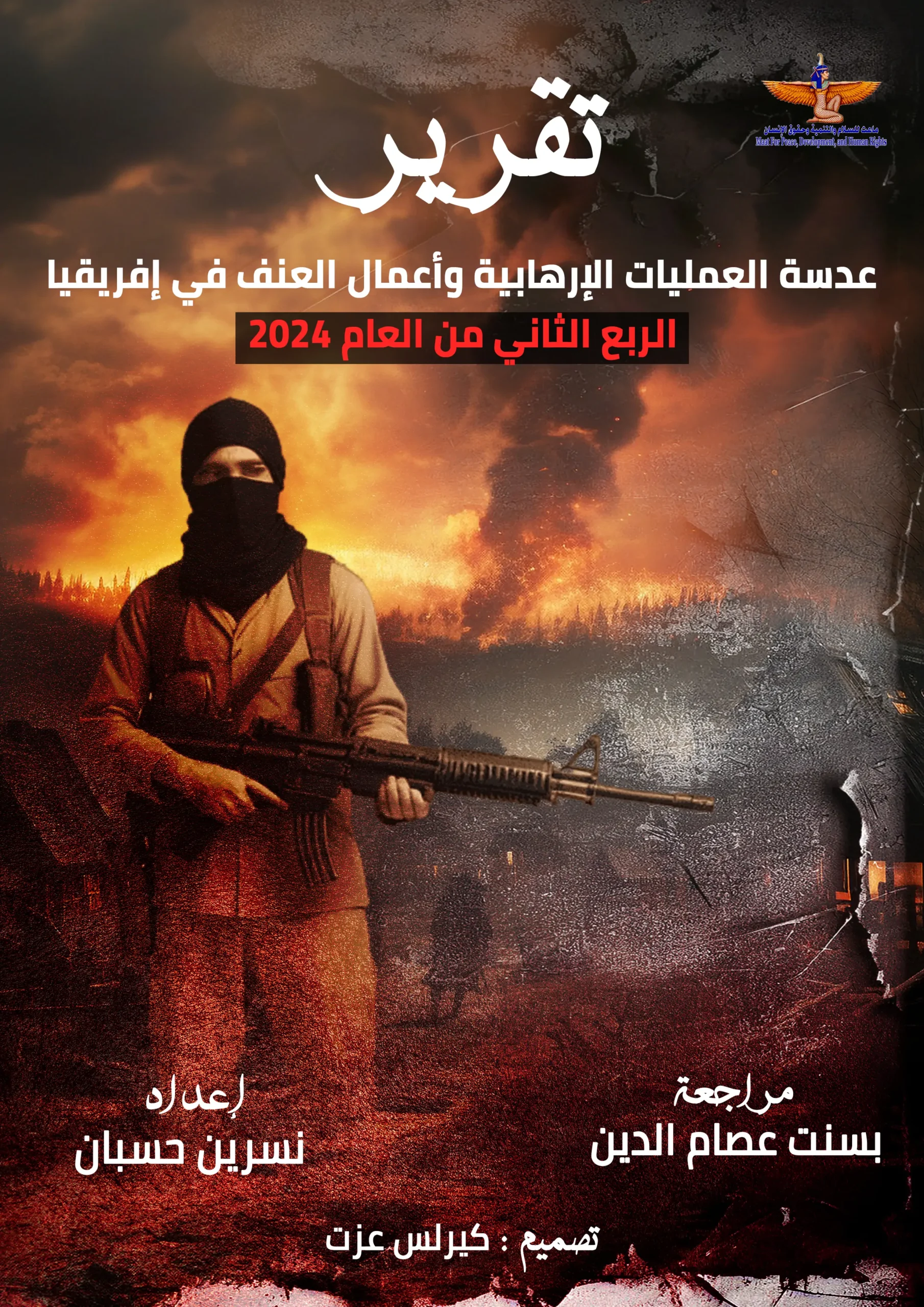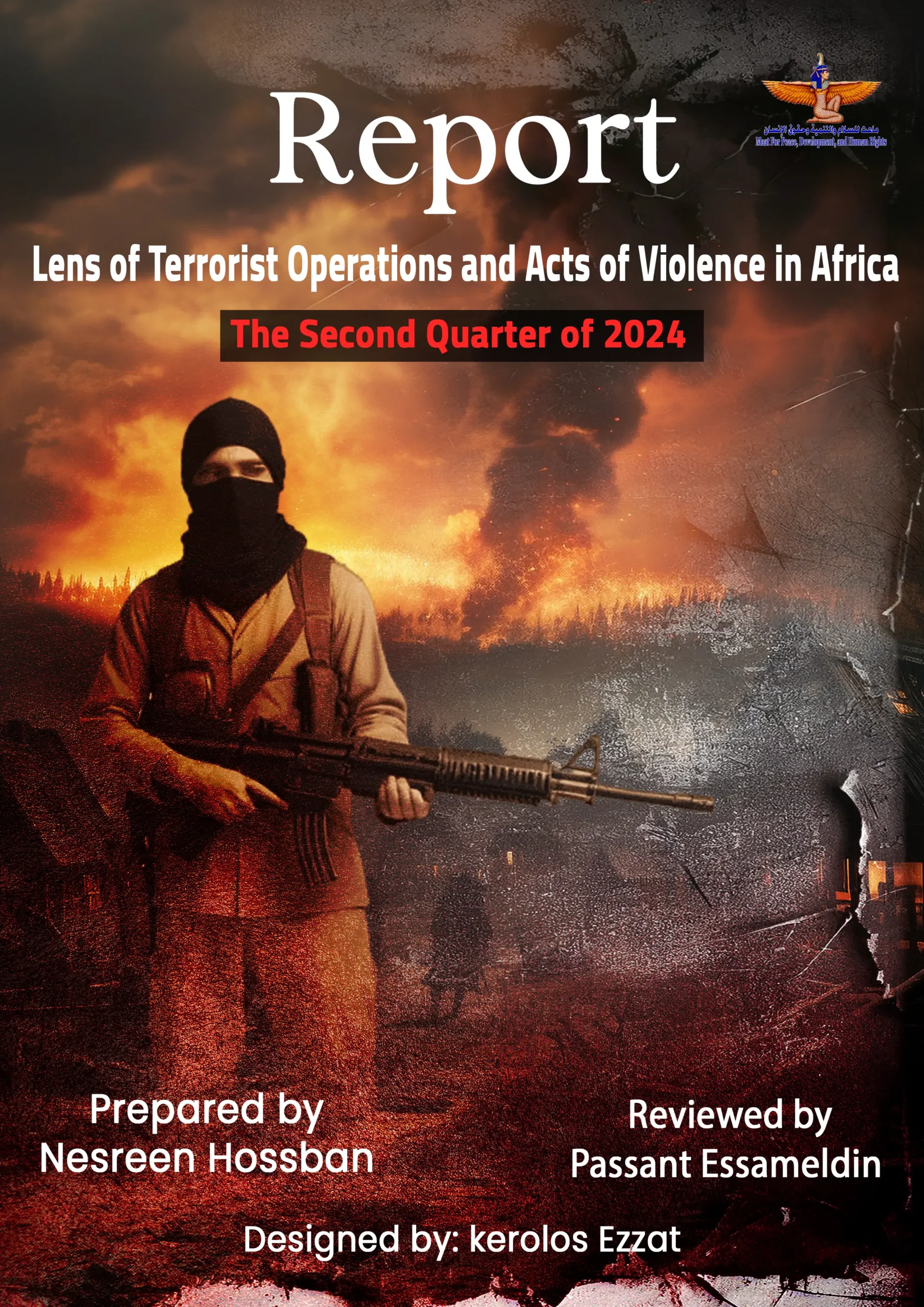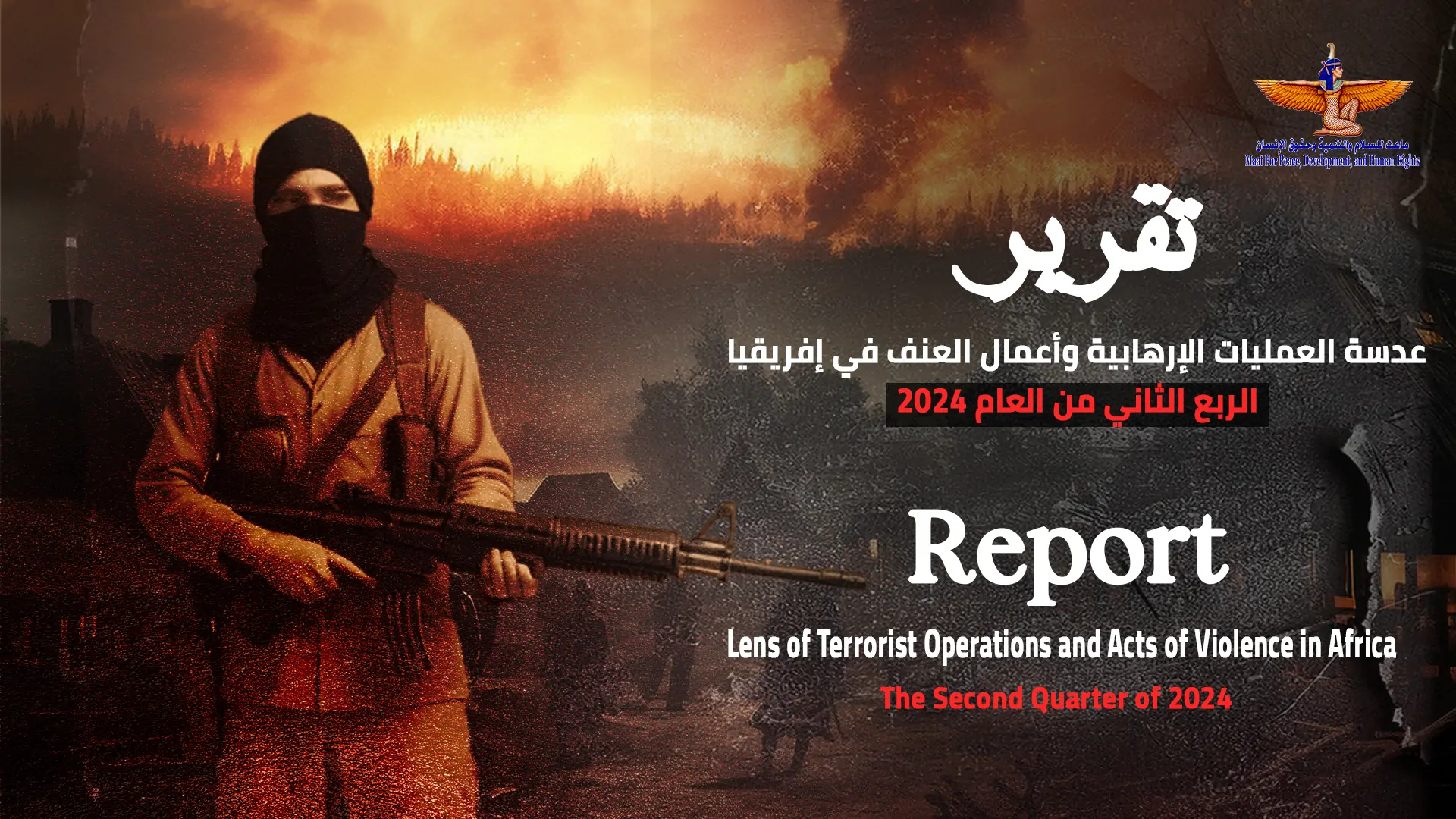Maat: Terrorist and violent operations caused the bloodshed of about two thousand people in Africa as a result of 152 terrorist operations during Q2 of 2024
Okeil stresses the need to implement Abuja Summit outcomes as well as UN Security Council Resolution No. 2719 on African-led peace missions
Hasban urges African countries to confront social and economic pressures that push individuals to engage in extremist acts and join terrorist groups
As part of its endeavor to track paths of terrorist organizations and combat violent extremism on the African continent, Maat for Peace, Development and Human Rights issued its periodic report titled "Lens of Terrorist Operations and Acts of Violence in Africa during Q2 of 2024." The report monitored an increase and escalation in terrorist operations in Africa, reaching 152 operations that caused the bloodshed of 1,936 people and 3,178 injuries and kidnappings. While some operations targeted military personnel only, the largest number of attacks fell on innocent civilians.
Nigeria topped the list of countries most affected by terrorism, with 52 terrorist operations that left 900 victims. This was due to the terrorist group Boko Haram developing new ways to plan attacks and employing female suicide bombers in three bombings in one day in Borno State, northeastern Nigeria. The report also indicated a decline in the role of ISIS and Al-Qaeda, with only two operations each in Nigeria, Mozambique, and Burkina Faso.
The report referred to the efforts of African countries in combating terrorism, culminating in the Abuja Summit to Combat Terrorism in the Nigerian capital, with the participation of many African leaders and the United Nations Office of Counter-Terrorism. The summit discussed ways of regional cooperation in the field of combating terrorism and violent extremism in Africa.
Ayman Okeil, an international legal expert and Chairman of Maat, stressed the importance of employing regional efforts to implement the outcomes of the Abuja Summit, especially the recommendation related to establishing a regional counter-terrorism center, and implementing UN Security Council Resolution No. 2719 on African-led peace missions.
Okeil also pointed to the centrality of working on the principle of regional and global diplomatic partnerships to prevent the financing of terrorism and the circulation and proliferation of weapons in Africa. He stressed the need to develop innovative means using advanced technology to track and pursue the paths of terrorist organizations, in addition to military solutions.
Nisreen Hasban, a researcher at Anti-Hate Speech and Violent Extremism Unit at Maat, called on African countries to confront the social and economic pressures, such as poverty and unemployment, that push individuals to engage in extremist acts and join terrorist groups. She also emphasized the need to prevent the interference of Western countries in the internal affairs of African nations, especially in the context of military support and foreign forces monopolizing parts of African lands.

 |
 |
shortlink: https://maatpeace.org/en/?p=42943












